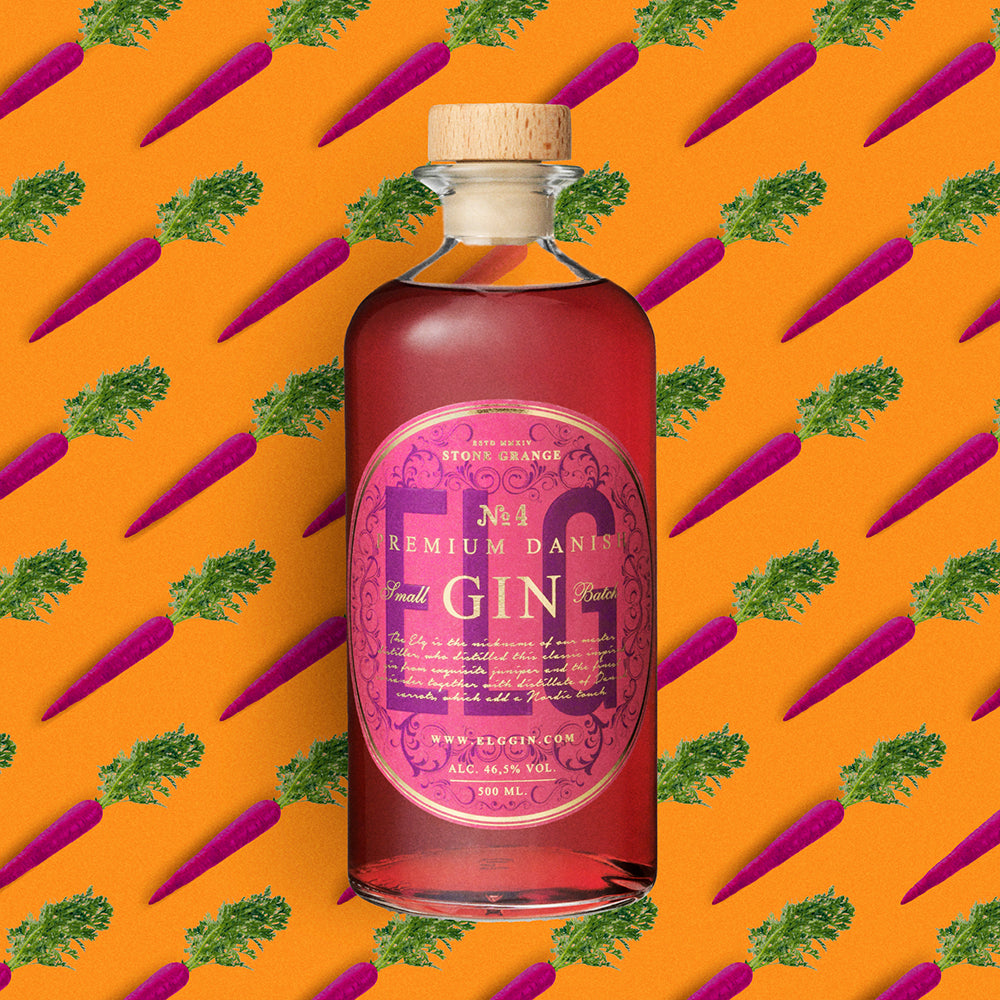
The story of gin goes back to 17th century Holland, where a Franciscus Sylvis, who was a professor of medicine, used alcohol mixed with juniper berries as a good and inexpensive remedy for pain in the kidneys.
Since then, the gin spread to England, when the Dutch Wilhelm of Orange ascended the British throne in 1689. And from here the development of gin took off.
The rootstock or base distillate in gin is of course ethanol, which has been added to a number of botanicals or in Danish called ´flavors´, e.g. juniper, saffron, sea buckthorn, carrots and more.
Elg Spirits Gin consists of only three botanicals
Master Distiller Henrik Elsner has chosen to work with different compositions of three primary botanicals in his ginner.
- Juniper
- Coriander seeds
- Carrots
The three botanicals are put together in several different ways. Eg. have Elg Gin No. 2. got its beautiful golden color by soaking the junipers in alcohol for 4 weeks. This extract creates a dark brown extract that contains a wide range of flavors and gives a sweetness that does not appear in the distillation process itself.
Elg Gin No. 4 is like the other ginners created based on the three botanicals mentioned above, but has got its unique taste and sweetness from an extract made from tops of freshly picked violet carrots.
The violet carrots that come fresh from the ground on Lammefjorden are immediately soaked in 50% strong alcohol. Here the spirits slowly become more and with violet and the alcohol percentage drops, as the spirits draw water out of the carrots. After 1 week, Henrik Elsner sifts the carrots off and the purple extract is filtered. The extract lands on an alcohol percentage of 38% and contains a wide range of flavors and aromas.
If you want to know more about how to make gin, we can recommend you to read more here.
And if you would like to taste the difference in Elg Spirit's different ginners, we can only recommend you order a gift box with Elg Gin No. 0, Elg Gin No. 1, Elg Gin No. 2 and Elg Gin No. 3

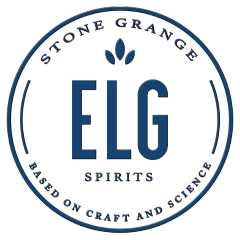
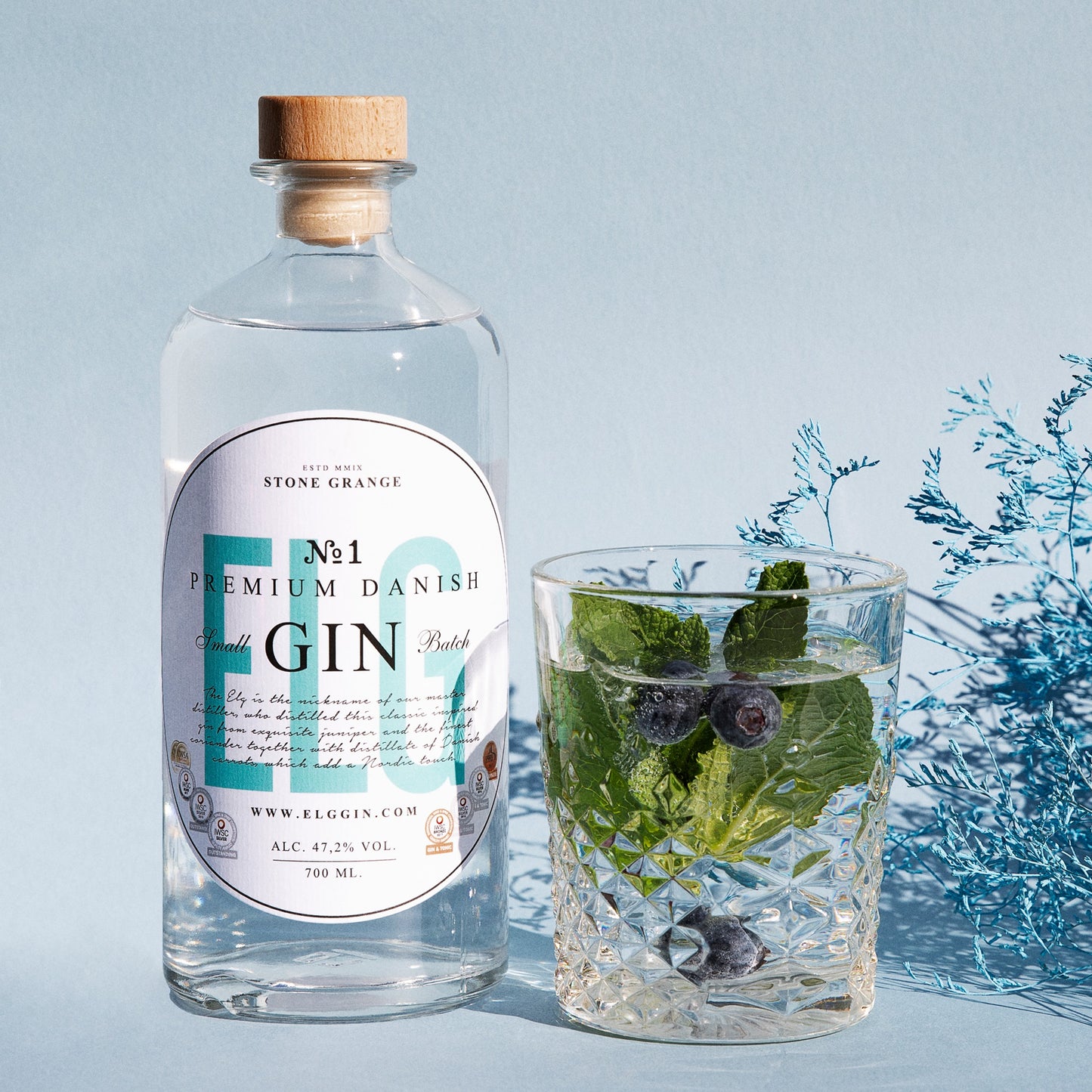
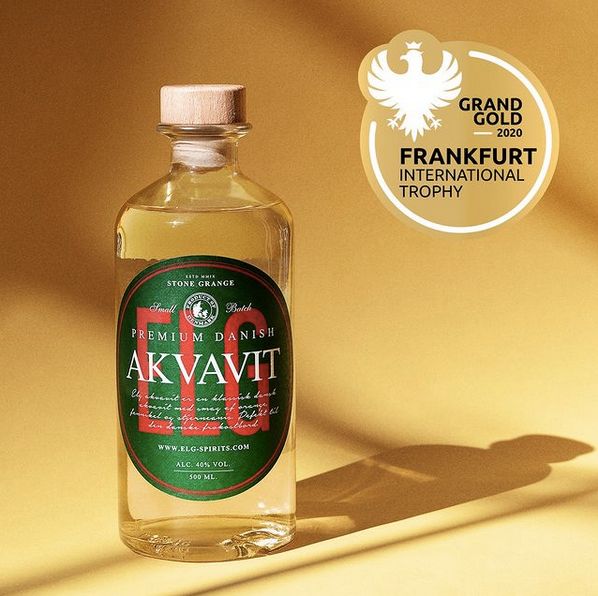
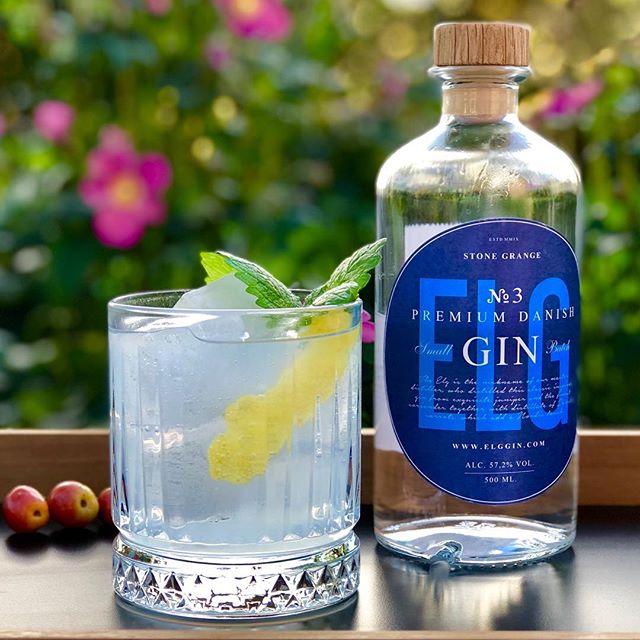
Muchas gracias. ?Como puedo iniciar sesion?